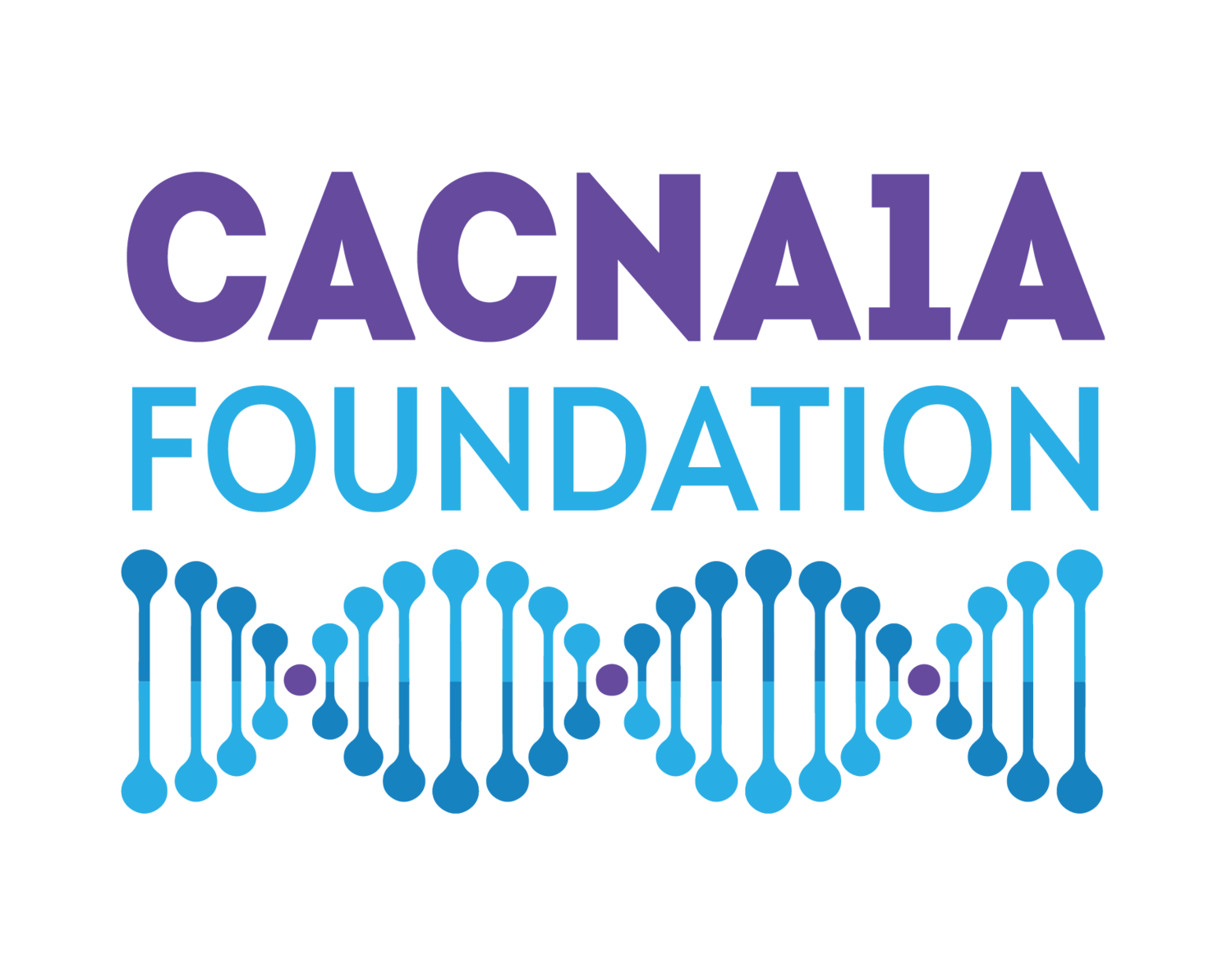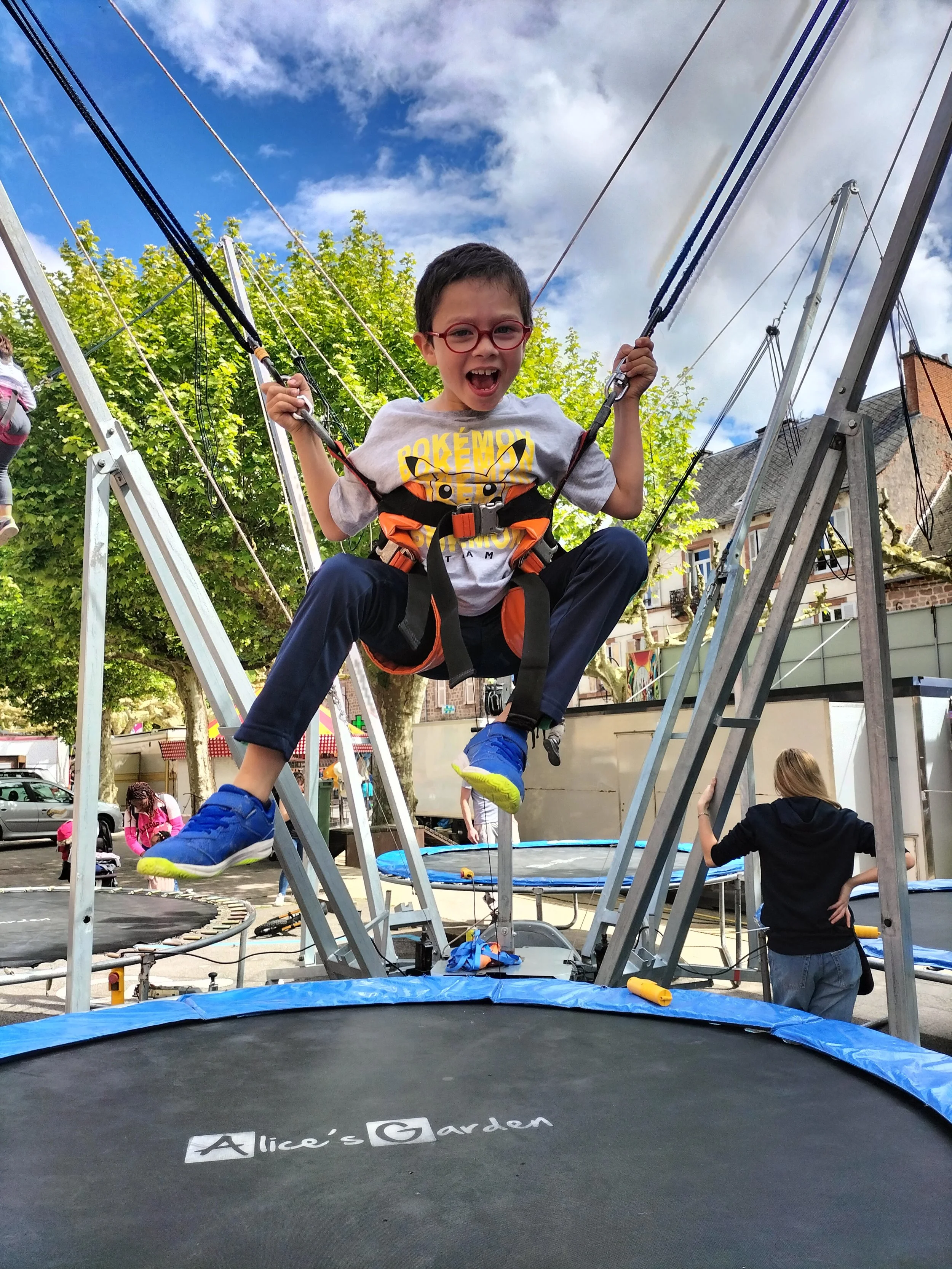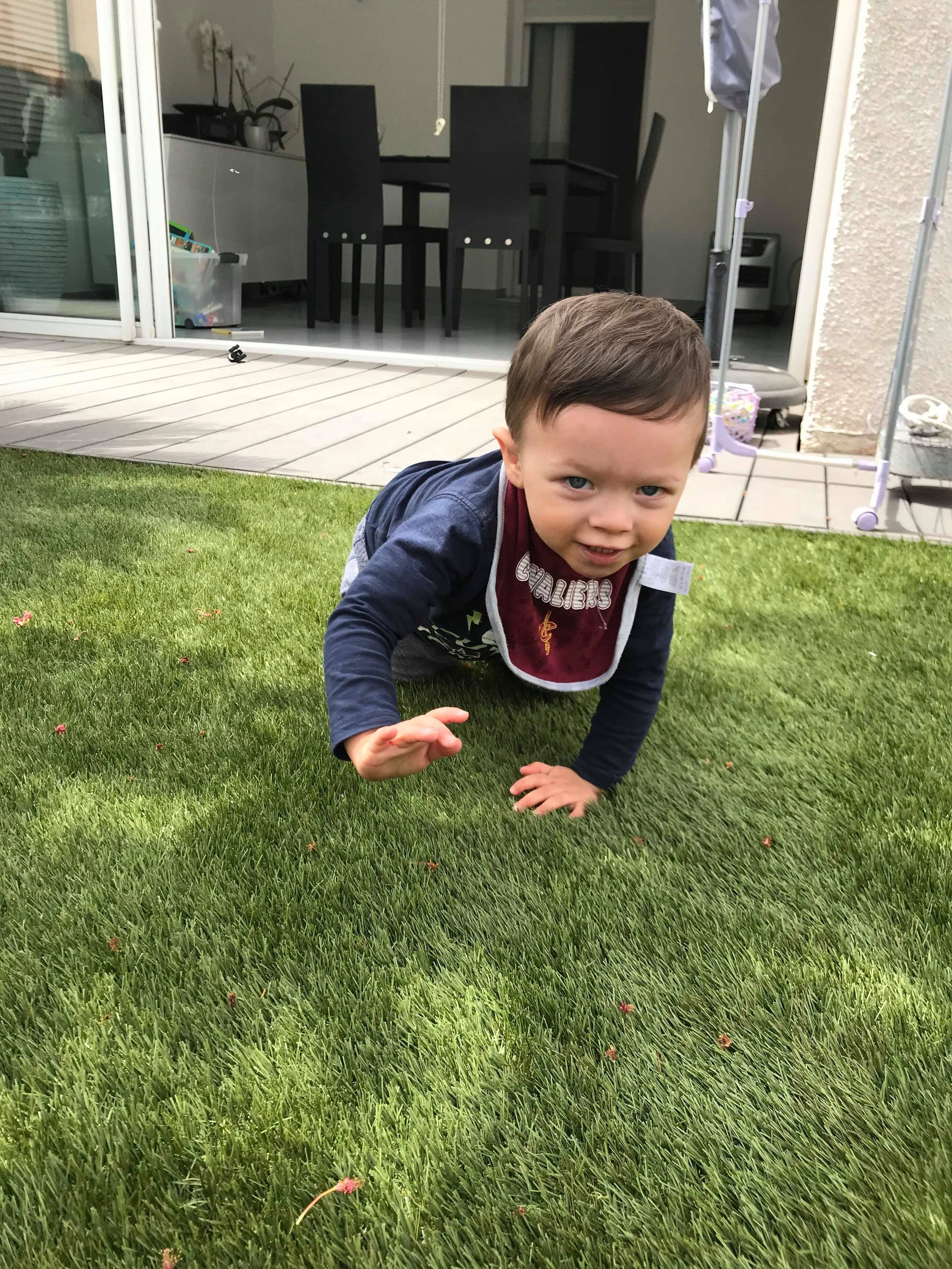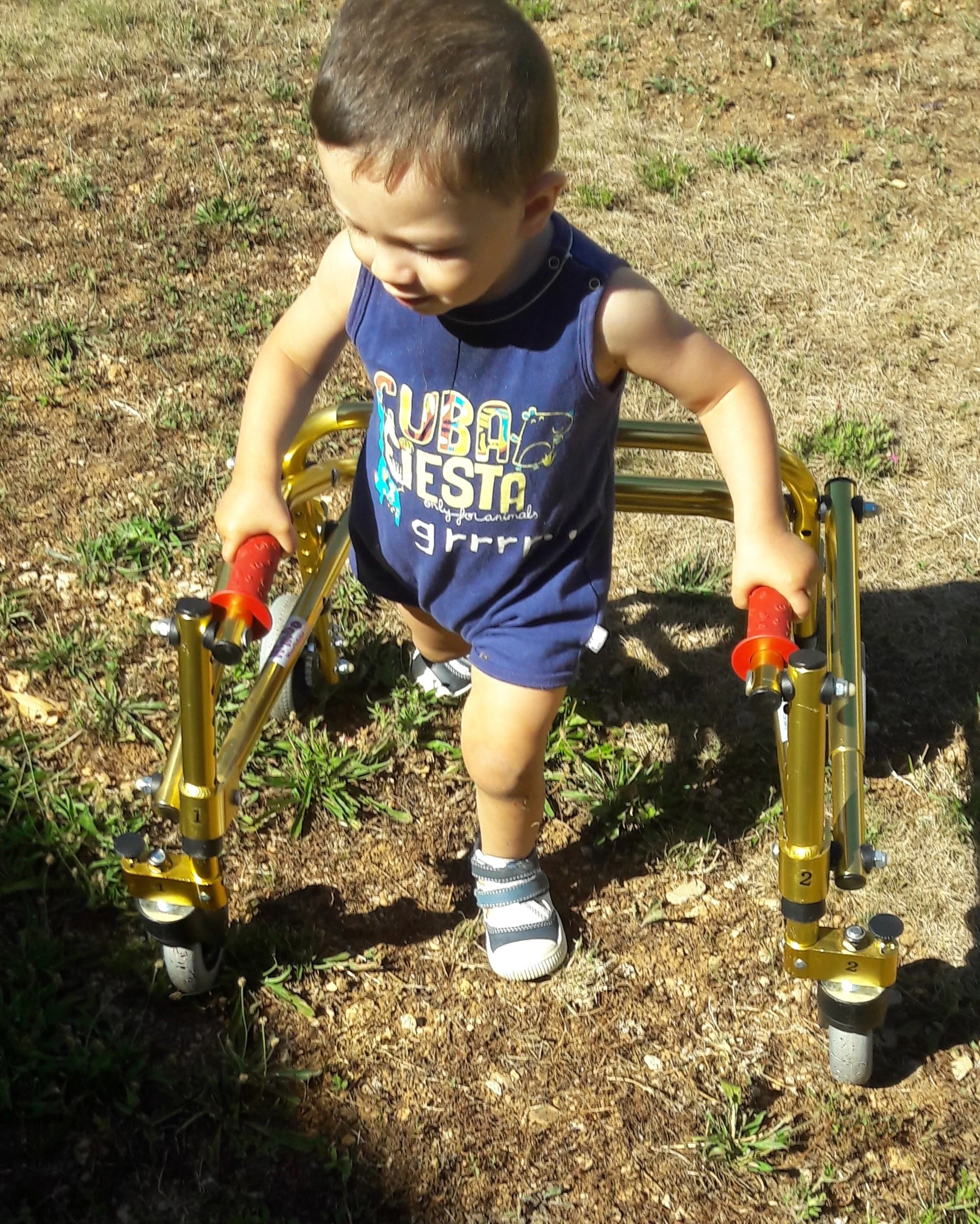Jules’
Story
Jules is a seven-year-old boy from France. His mother, Isabelle, tells us that he is a lively child—always smiling and full of energy. He is very endearing and extremely curious. Jules is also an incredibly energetic child: a balance bike champion who recently started riding a bicycle with training wheels. He runs, does somersaults, stunts… he’s more comfortable in motion than he is walking! However, he struggles with repeated falls, issues with expressive communication, and anxiety.
Variant: c.4988G>A, Argl663Gin
History
Early on, Isabelle notes, they noticed delays in Jules’ developmental milestones—things like sitting up and crawling came later than expected. He was also farsighted and had muscle hypotonia. When he reached the stage where children typically begin to walk, ataxia became apparent. As a result, Jules didn’t start walking until the age of 3.
His current symptoms include ataxia, hyperactivity (combined with ataxia—what a mix! 🤦🏽♀️), and muscle hypotonia, which affects his speech clarity, fine motor skills, coordination, and emotional regulation. He has not experienced any epileptic episodes or hemiplegic migraines so far.
Since Jules was one year old, he’s been through countless medical evaluations. After ruling out all other likely causes, his family eventually turned to genetics, which led them to the CACNA1A diagnosis.
Therapies
Jules has transitioned from mainstream education to an IEM (Medical-Educational Institute), where he benefits from a specialized teacher and works in small groups using adapted materials. To support social integration, he also participates in inclusion sessions at a partner school three afternoons a week.
In addition to his tailored education, Jules receives a range of therapies that help support his development:
Physical therapy – twice a week
Psychomotricity therapy (utilizes movement, games, and activities to help individuals explore their emotions, develop motor skills, and improve body awareness) – twice a week
Occupational therapy – once a week
Speech therapy – once a week
Equine therapy
For Those Newly Diagnosed
Having the courage to talk about it and seek support from loved ones and professionals. Celebrating even the smallest victories and putting things into perspective as much as possible. Keeping hope for future progress. We may be few, but we are not alone.










